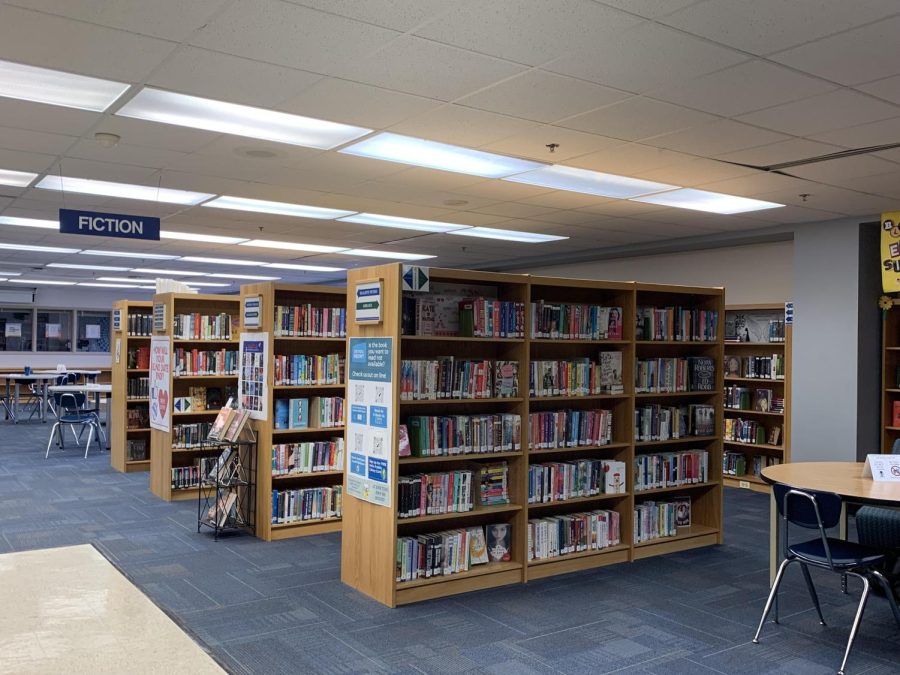Hidden: the potential of the humanities today
At the WCHS media center, students can enrich themselves with a brand new book discovery, or sit at a desk and catch up on homework. In whatever way students need, the media center is the perfect place for students to connect to the WCHS community.
March 28, 2023
Scratch paper strewn across the desk, eraser remnants scattered and deeply furrowed eyebrows. Should one happen to catch a glimpse through the doorframe of any of the plethora of advanced STEM-related classes offered by WCHS, these are the sights they are likely to see. These courses focus on developing technical skill sets with objective answers that do not challenge thinking beyond law or formula. But for a strong sense of identity, the ability to think analytically and formulate nuanced, holistic viewpoints, courses in the humanities are equally as important, though too often viewed as an inferior choice.
“For students and individuals to reach the level of education and ability that technical professions may need, important skills learned through the humanities need to be in place,” WCHS junior Sadie Herman said.
With the exponential rise in STEM-related advancements in today’s society, the pressure to make further advancements has been heightened by a near-physiological dependence that individuals have on their devices. After the COVID-19 pandemic, this dependence only deepened. In the past few decades, STEM-associated careers have had a higher moral and societal value due to an amalgamation of monetary and humanitarian impacts. This results in less enrollment in humanities classes.
“The competitive environment at Churchill makes it so everyone feels like they need to take AP or at least honors classes that are weighted,” Herman said. “Since there are fewer AP or honors English or social studies courses that go beyond graduation requirements, students aren’t incentivized to take them compared to the wider variety of STEM classes.”
As the stigmatization of liberal arts and humanities results from community-wide and generational factors, its implications reflect these small-scale and large-scale contributors. According to “Harvard Magazine,” the percentage of bachelor’s in the humanities degrees “at Harvard dropped from close to 30 percent to about 10 percent.” At the same time, “there are now as many or more computer science majors in the United States as in all humanities fields combined.”
“When the humanities are viewed as arbitrary, it hurts our society’s ability to deal with important issues.” WCHS junior Jaina Simon said.
Courses such as English, history, or social sciences develop skills in interpreting nuances and understanding subjectivity. They mold more empathetic and conscious global citizens, enabled to chip away at deep-rooted societal issues that plague our modern world. These skills must be present not only in future policymakers and leaders but in all community members.
“Pursuing STEM to escape the stigma around the humanities strips communities of new voices and hurts the way we think about and take in the world and its problems,” Simon said.
With troubling topics such as the anti-Semitism at Walter Johnson High School in November 2022, along with instances of hateful and violent speech appearing with concerning prevalence within the county-wide community, having an educated, well-versed student body is crucial. With a greater understanding of historical reasoning and higher proficiency in thinking critically, the occurrence of such incidents will decrease.
“The humanities equip people with the tools to understand not only the world around them but themselves,” Herman said. “I have always liked how English class lets you express your creativity and thoughts.”
In an age where thirty-second video clips on TikTok or arrays of multi-colored squares on Pinterest manufacture faux-individualism, identity and the ability to craft independent opinions keep one grounded and safe from the infinite rabbit holes to which social media can lead. Through crafting arguments and weaving together threads of evidence, English classes, especially at WCHS, often challenge students to think for themselves.
“Critical thinking is essential for the betterment of not only our communities but also for the protection of ourselves as we continue to advance into a tech-centered world,” Simon said.



